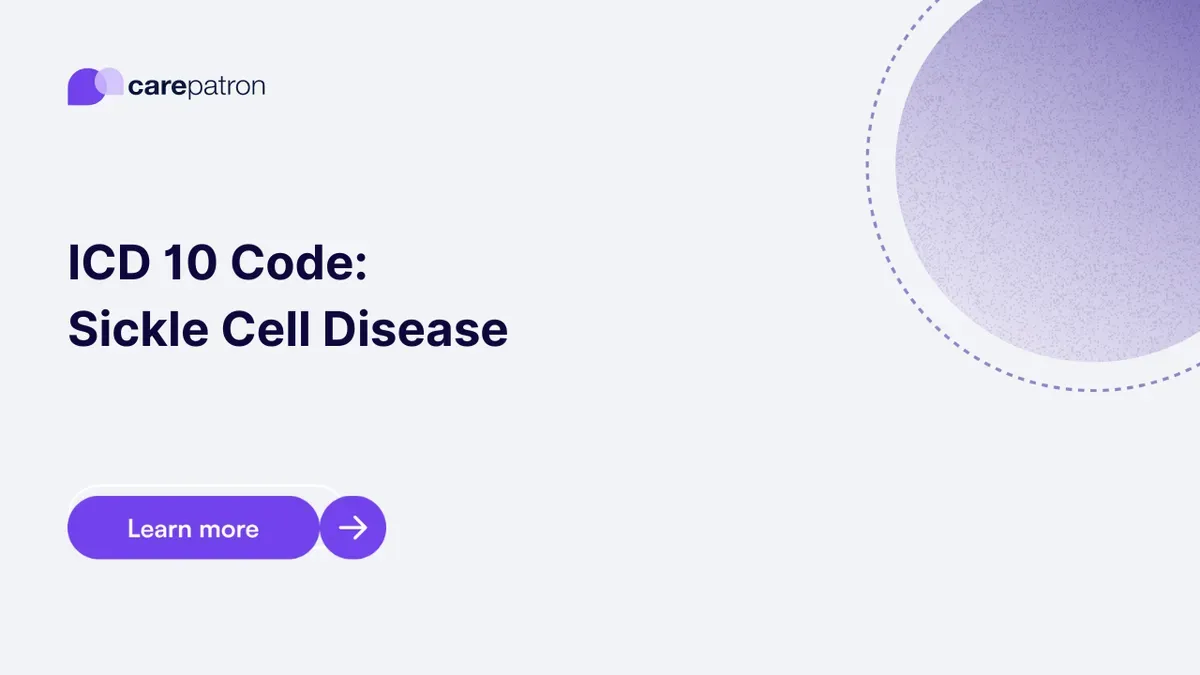
Sickle Cell Disease ICD-10-CM Codes
Simplify coding with our comprehensive list of ICD-10 Codes Used for Sickle Cell Disease. Stay informed and streamline medical coding practices efficiently.
Use Code
Commonly asked questions
Use these codes to classify and bill for cases of Sickle Cell Disease in medical records.
Treatments may include pain relief, blood transfusions, infection prevention, and, in rare cases, bone marrow transplants.
It's a standardized way to identify and categorize Sickle Cell Disease in medical documentation and billing systems.
EHR and practice management software
Get started for free
*No credit card required
Free
$0/usd
Unlimited clients
Telehealth
1GB of storage
Client portal text
Automated billing and online payments
